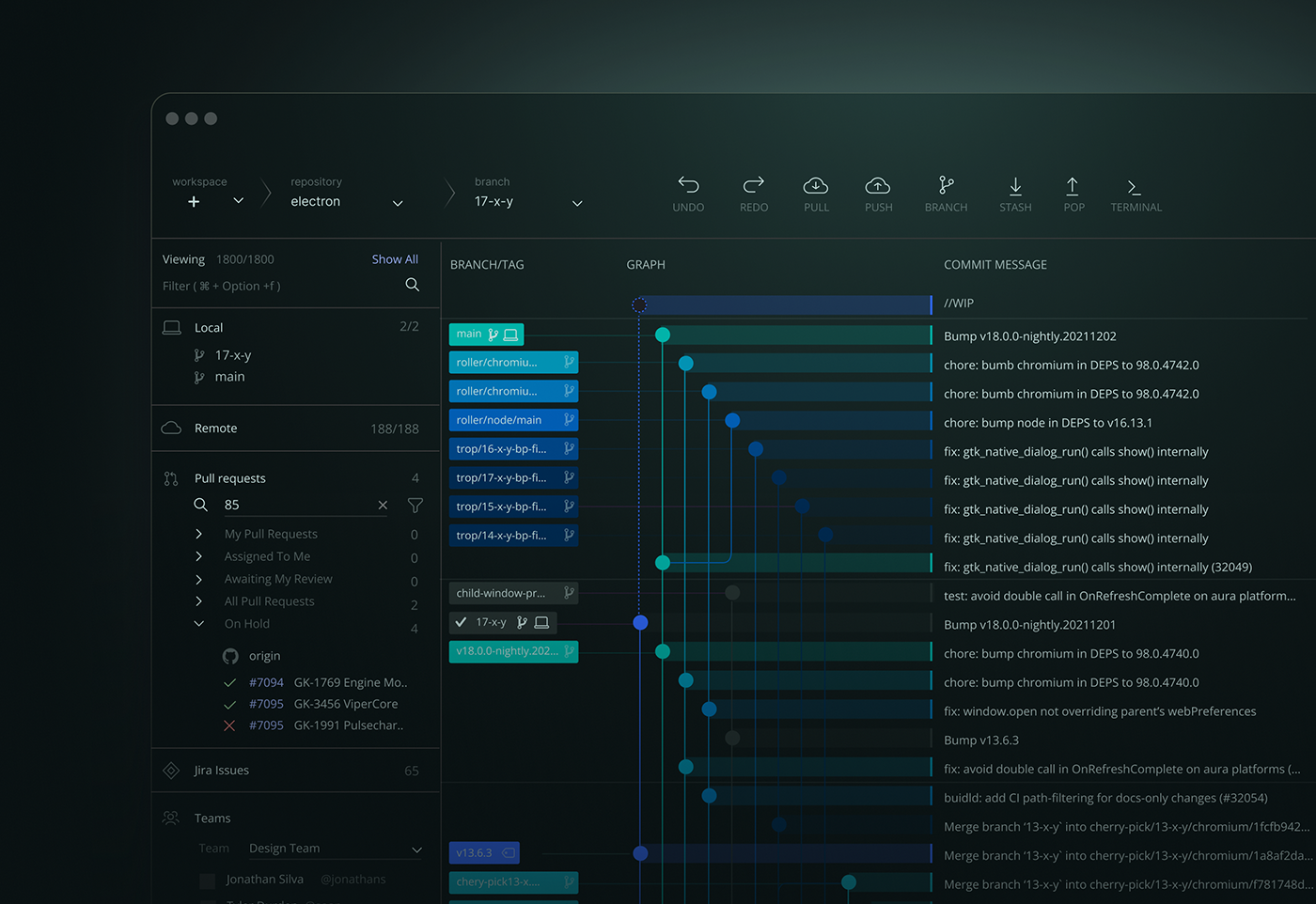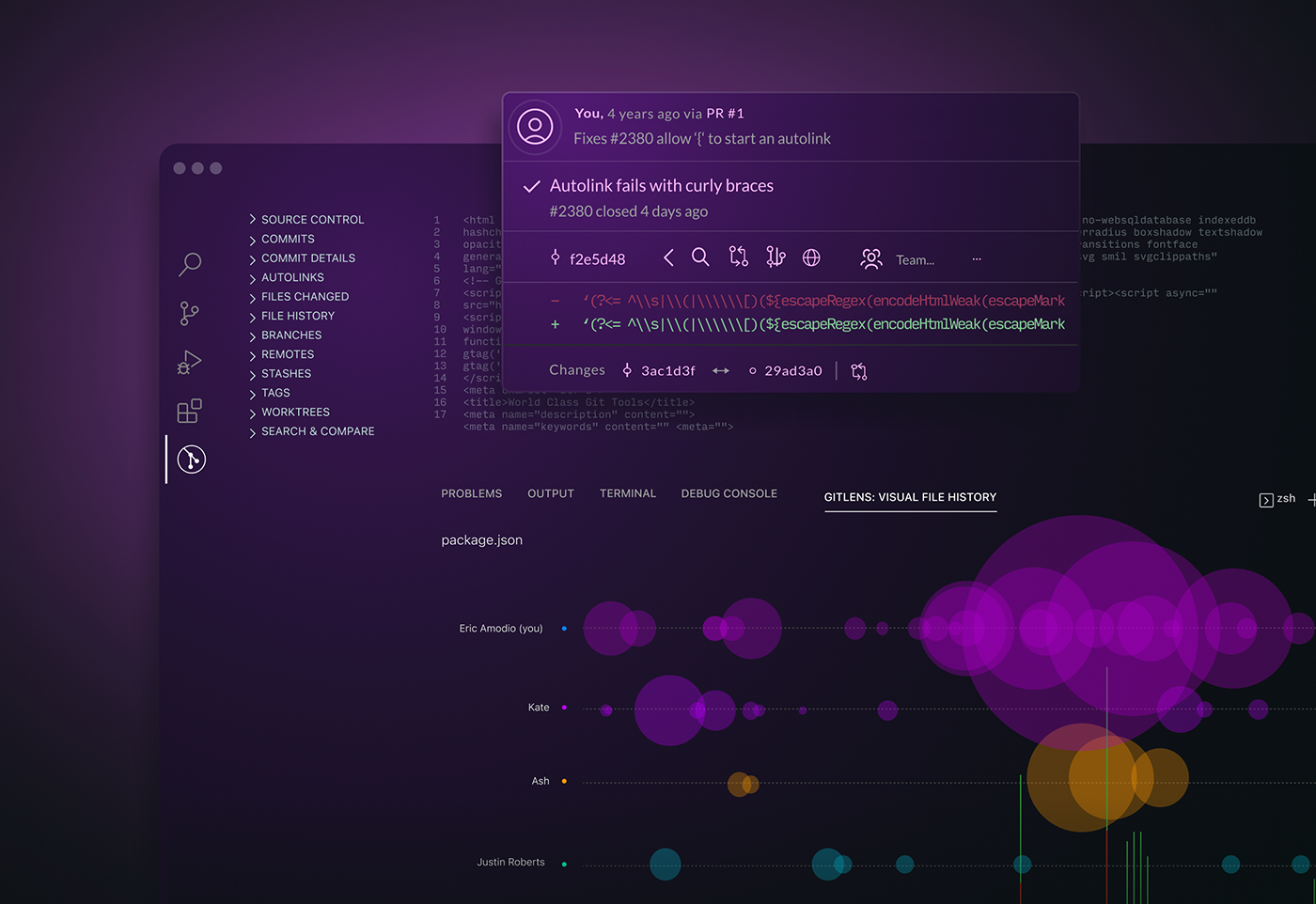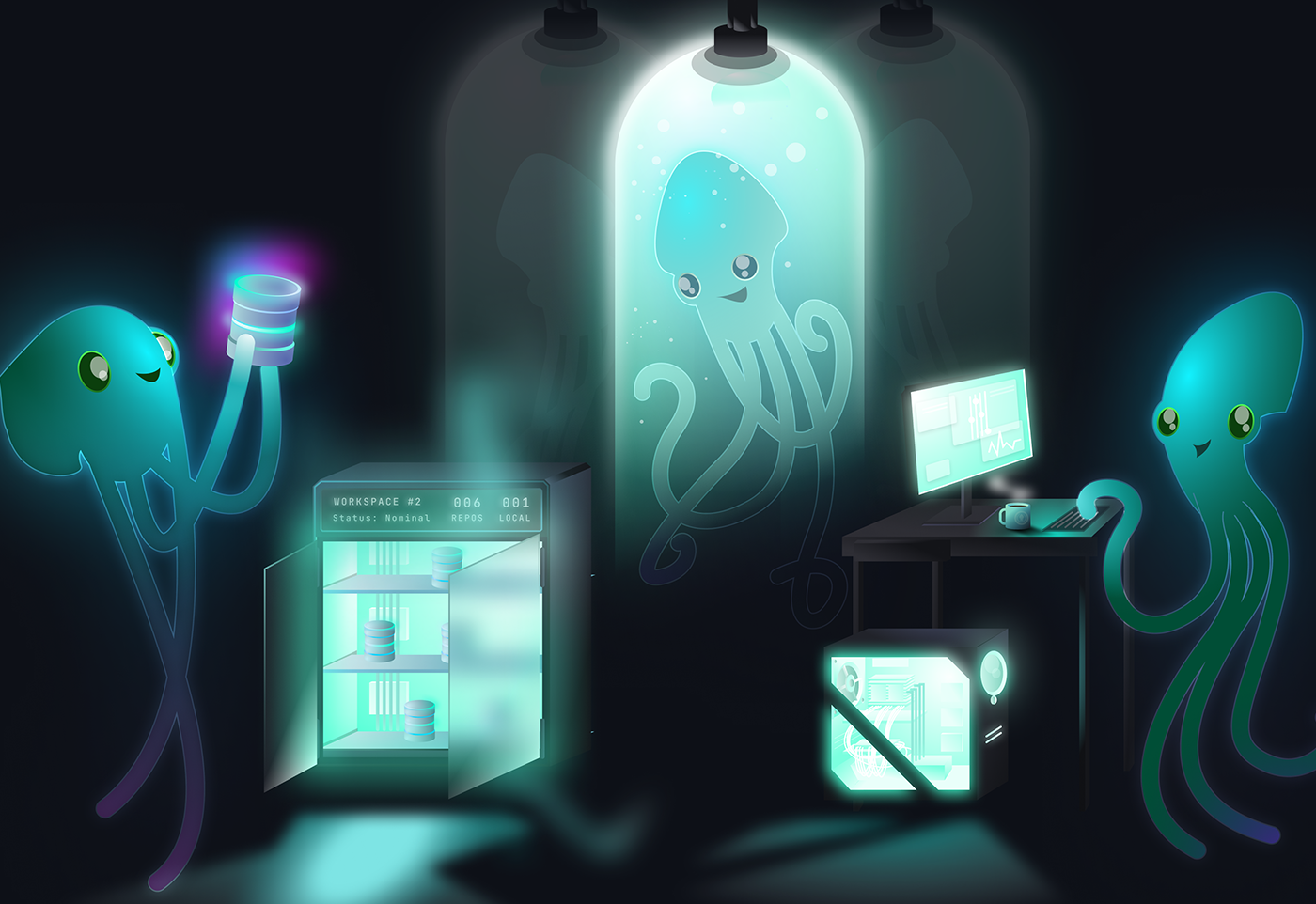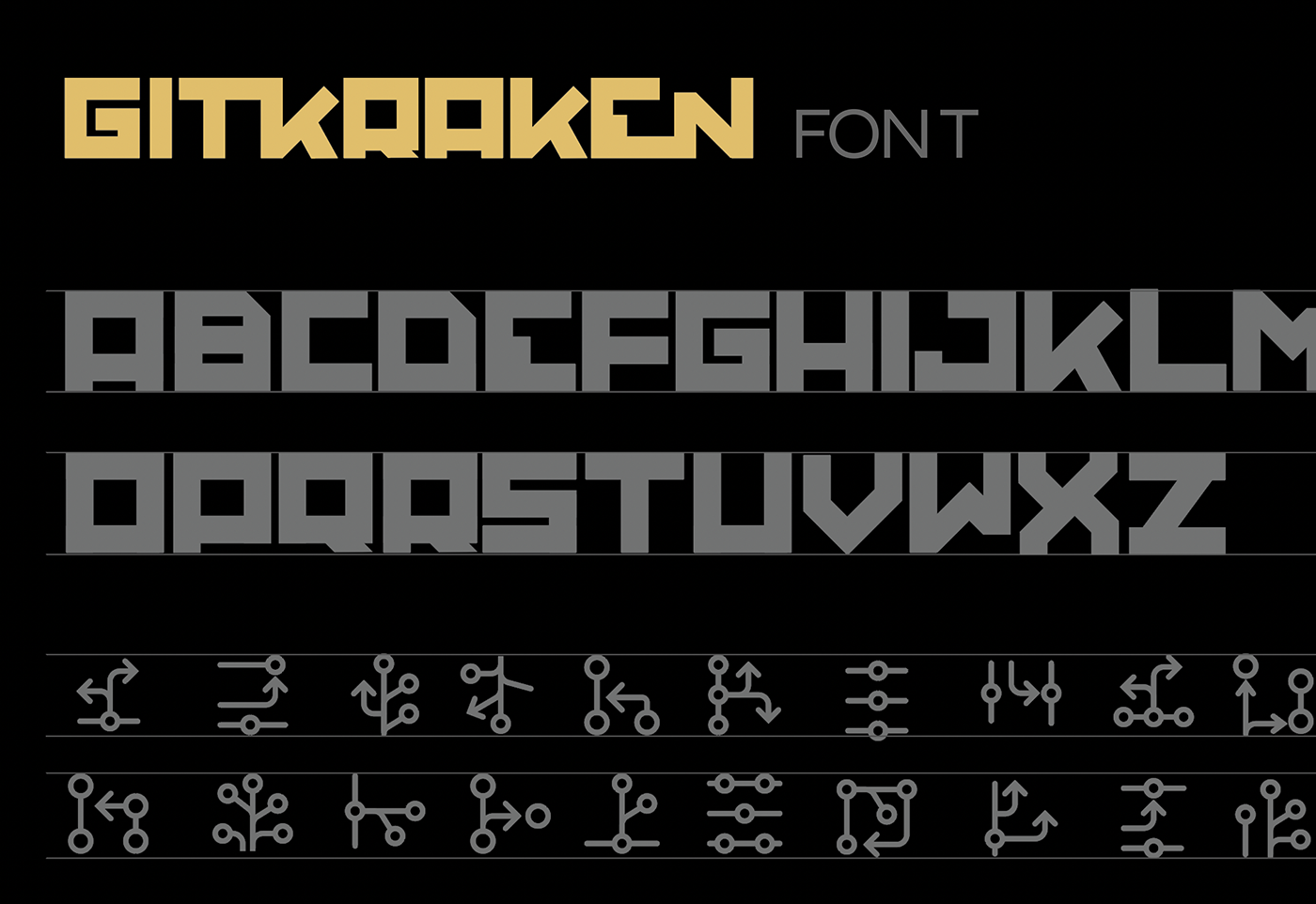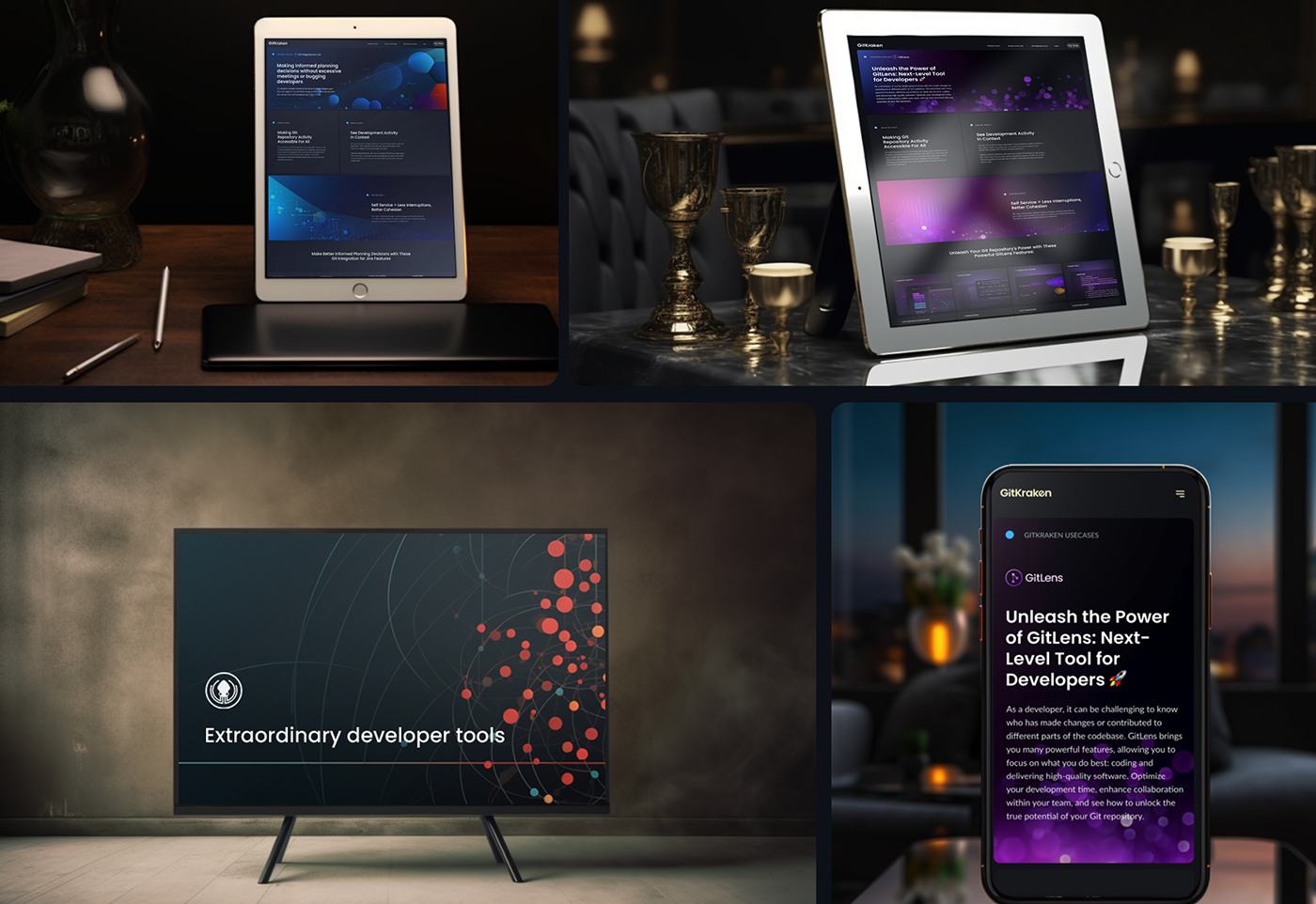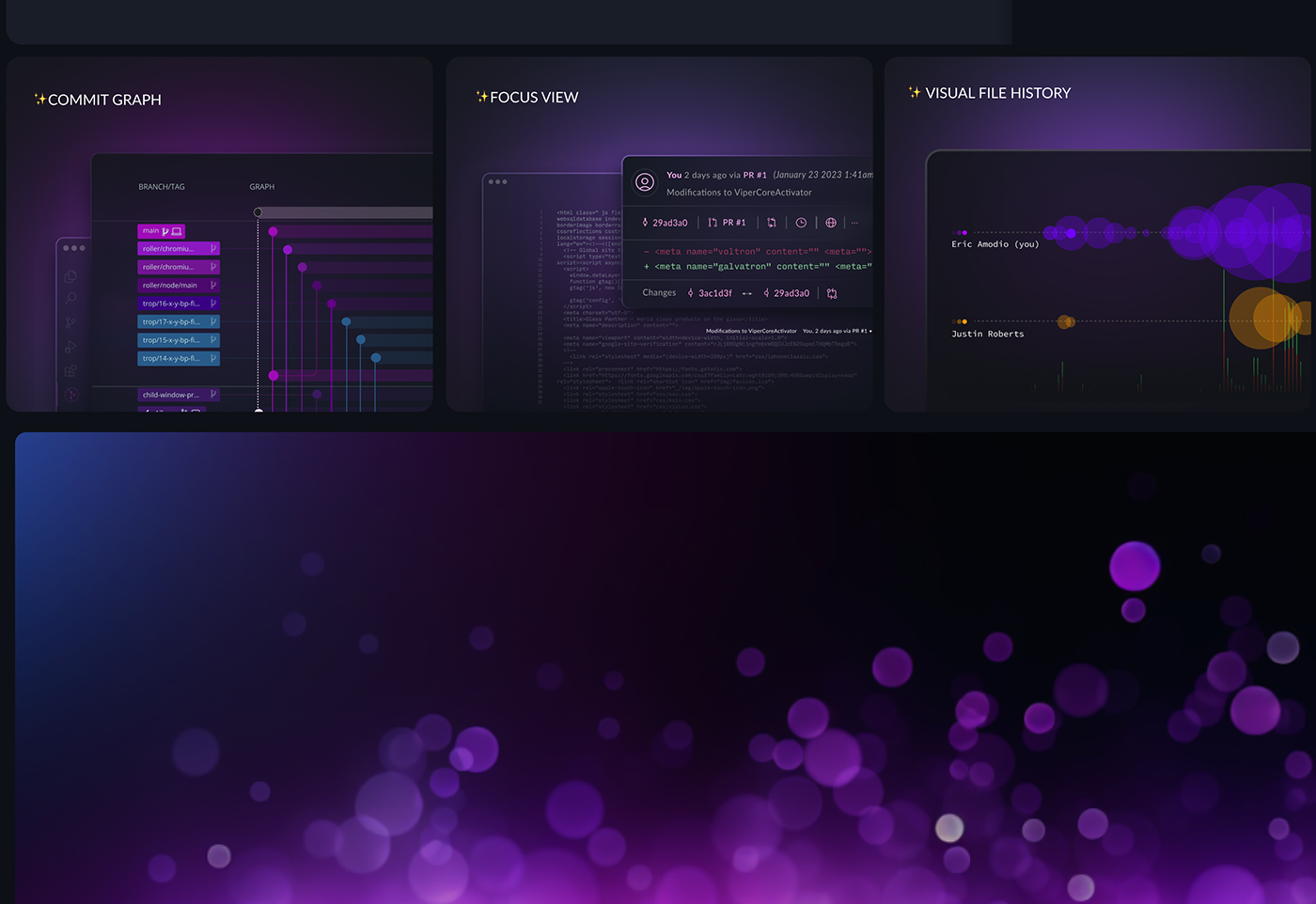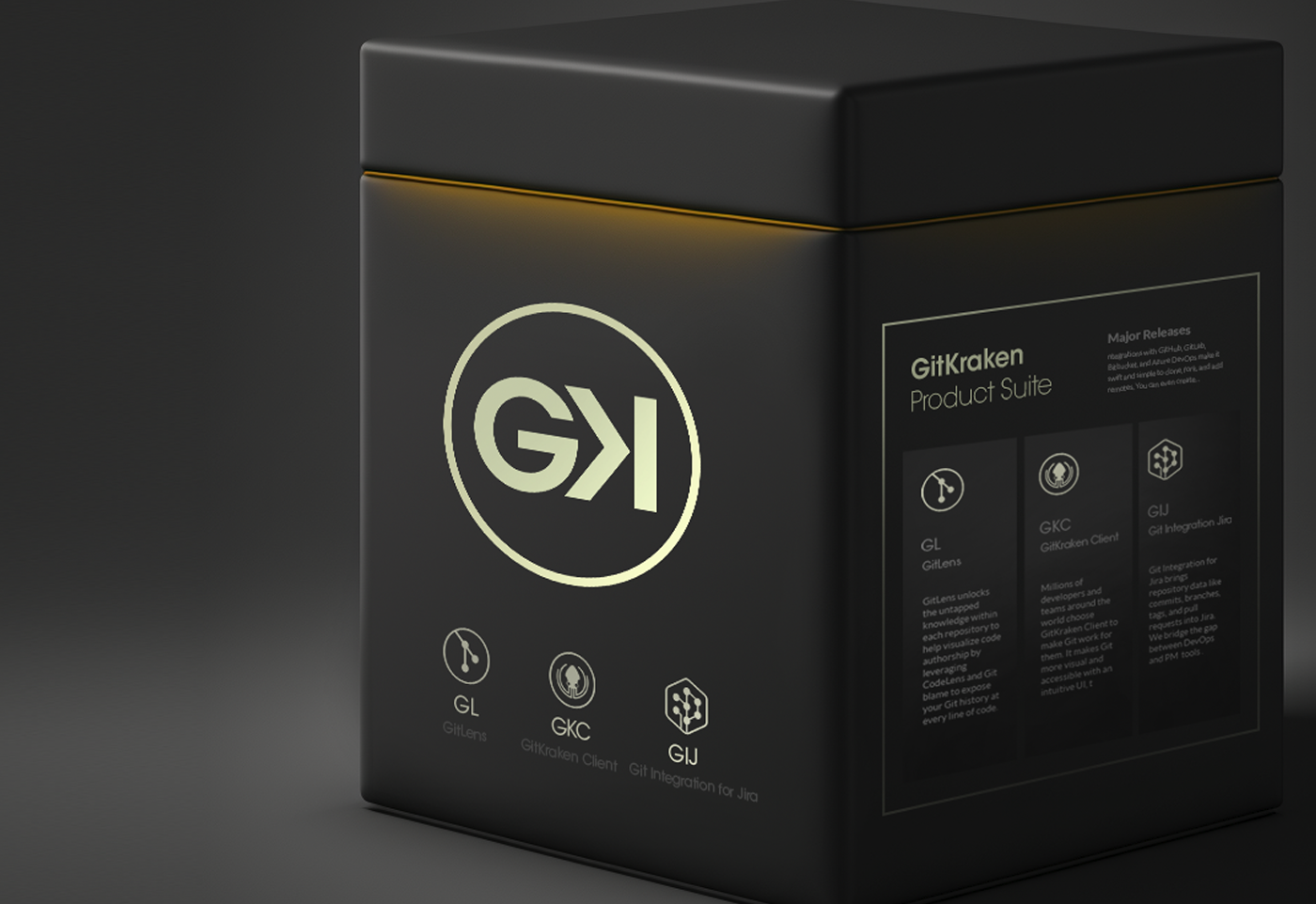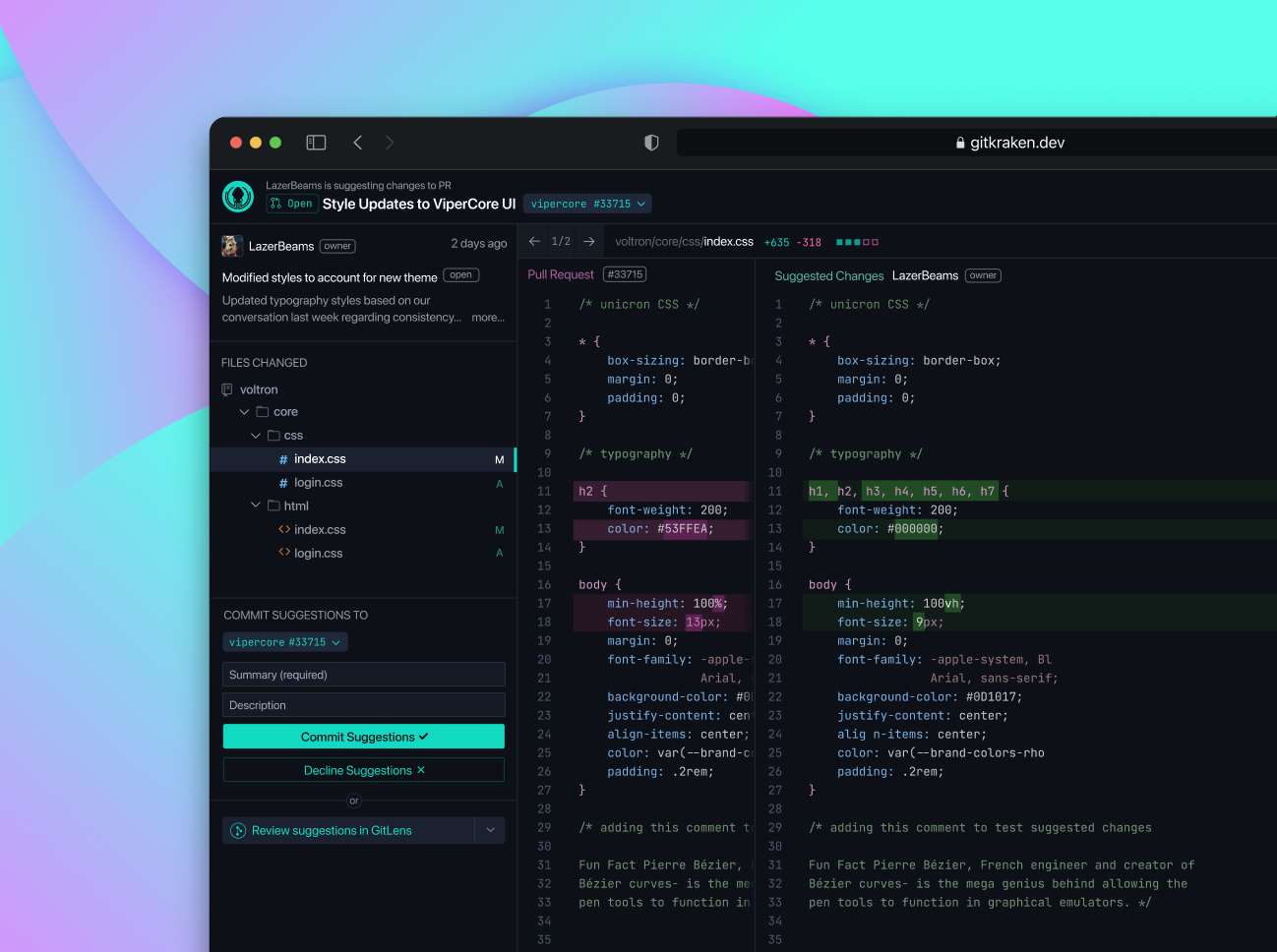

GitKraken Acquired by Resurgens
Written by Manning Fisher - Principle Product Designer @ GitKraken

Writing optimal code is crucial for developers, and human collaboration is key to achieving this. Code review tools are essential for maintaining the integrity of well-built products, which are vital for software development.
We are a team of developers that love building tools that optimize our worlds. As engineers, designers and product managers, we identified many challenges in standard Git workflows that inhibited us from working more effectively together.
The complexity of software development underscores the essential role of collaboration; hence, any element within this process that introduces friction can significantly impede productivity. Through a careful evaluation of these workflows and pinpointing areas ripe for improvement, we have been able to devise a range of potential solutions that promise to significantly bolster our collaborative efforts and overall effectiveness in software development.

By Identifying opportunity to improve the development of code, It was imperative for the team to immerse ourselves in the problem. To take a project from 0 to 1 is often one of the most challenging yet rewarding phases in the lifecycle of an initiative. Getting off the ground requires overcoming a unique set of challenges that differ from scaling or maintaining an already established endeavor.
It requires a tremendous amount of alignment from a team and communications must be high. Transparency and visibility into work and decisions is not just to check the `product-principles` box ... these values fundamentally improve the quality of the work through high touch points, frequent communications and constant sharing. Each critical to the success of projects in its early stage.
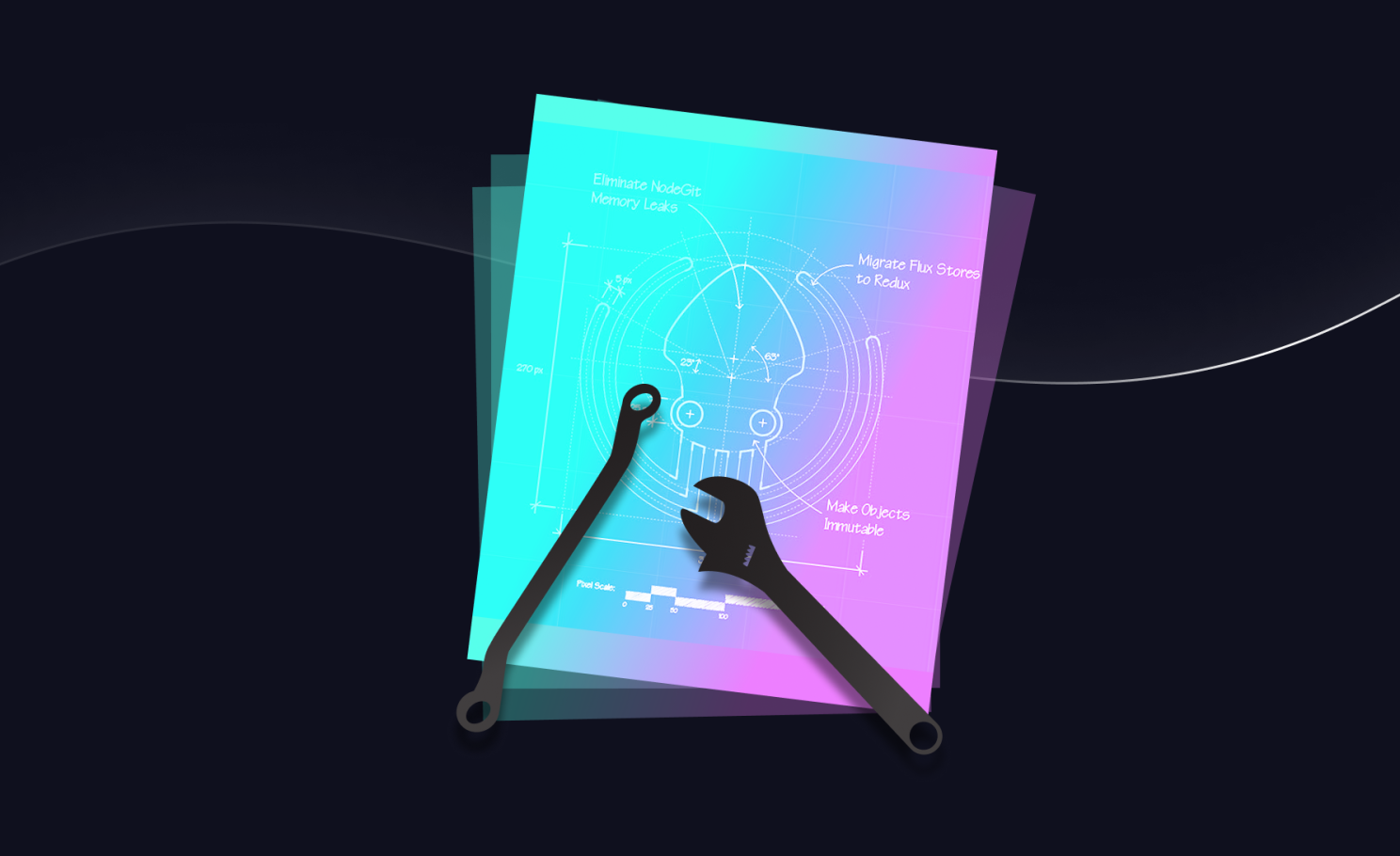
Collaboration, communication, and sharing code during software development is a complex, time-consuming, multi-step process involving many touch-points and pain points. This process impacts a majority of software developers and organizations globally. With so many touch-points, there is potential for error, which can reduce code quality or, worse, introduce bugs and poor user experiences that compromise the overall product effectiveness.
Optimizing workflows for collaboration, communication, and code-sharing will significantly improve productivity, reduce error rates, and decrease time-to-market for software developers. This will also decrease computational and financial costs associated with CI builds and other automated systems, presenting a substantial value proposition. These processes can be measured by observing time, sequence, and other attributes to quantify positive impacts. We refer to the cost impact as operational-debt.
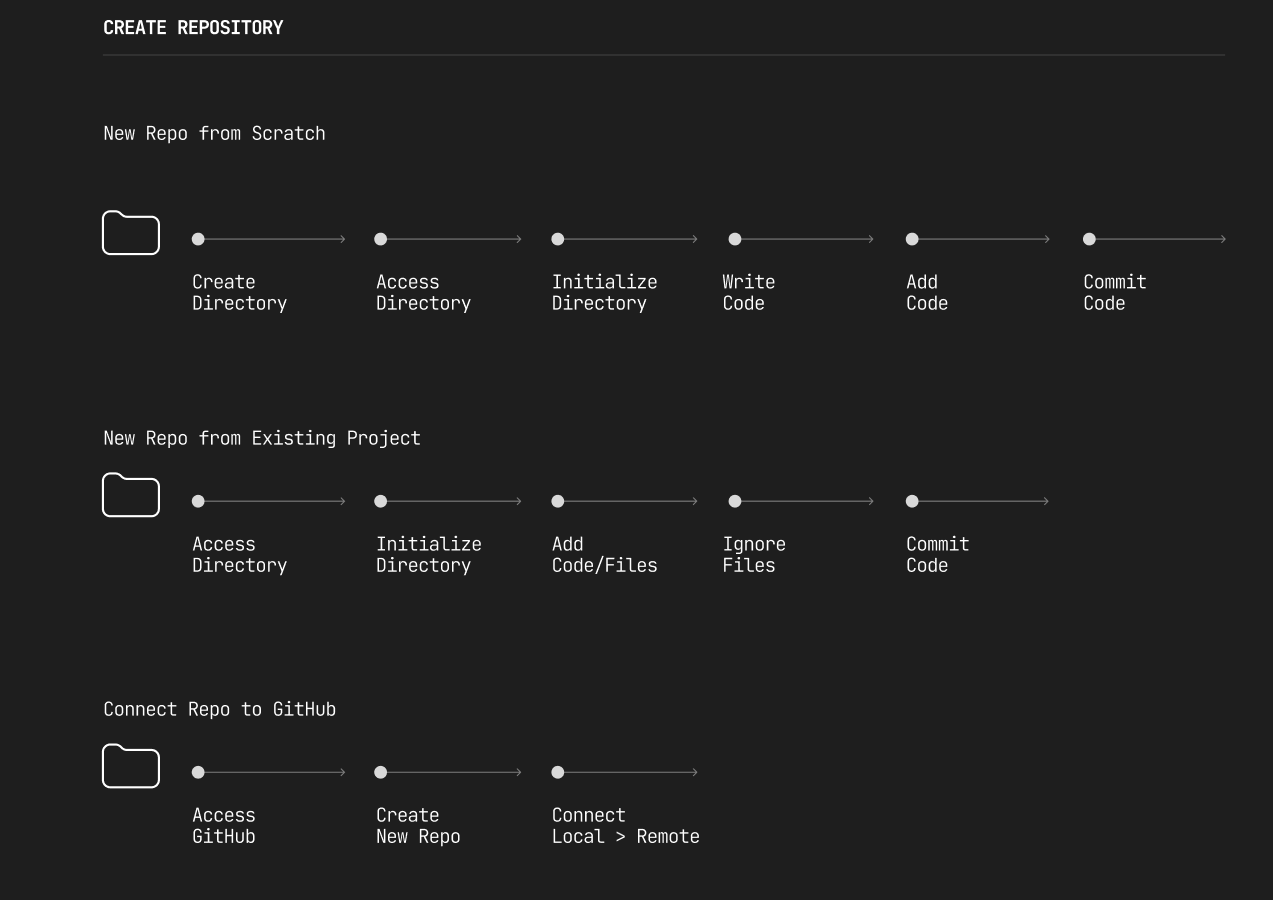
Interviewing software developers using git for version control, reviewing git model diagrams, clocking processes, consulting key stakeholders, and drafting models of processes and workflows were essential to our development process. We identified a major area for improvement in the code review process and the tools used to display code differences during the PR process.
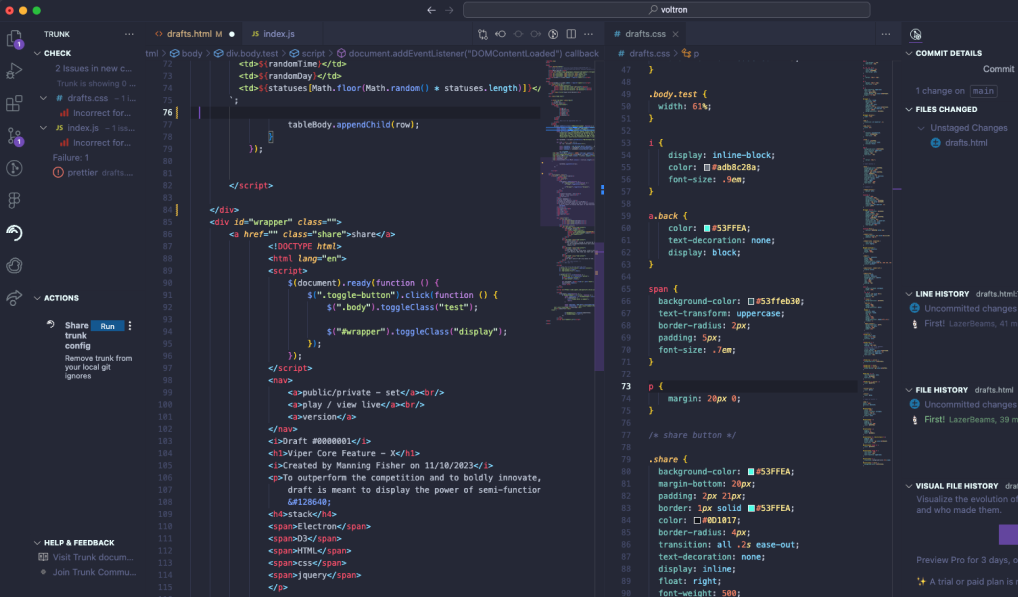
Many tools aim to help developers review code, offering a wide range of functionality. These tools vary in features, helping developers analyze code in different ways. However, some diffing tools can be challenging to use, difficult to navigate, and lack context, preventing users from analyzing files and lines of code outside the modified PR files.
Providing more insight, navigability, and basic file and repo context would give code reviewers more flexibility. Allowing them to suggest code changes within the PR directly, without creating separate branches or making complex modifications to their local environments, would improve the review process and the integrity and quality of code in general.
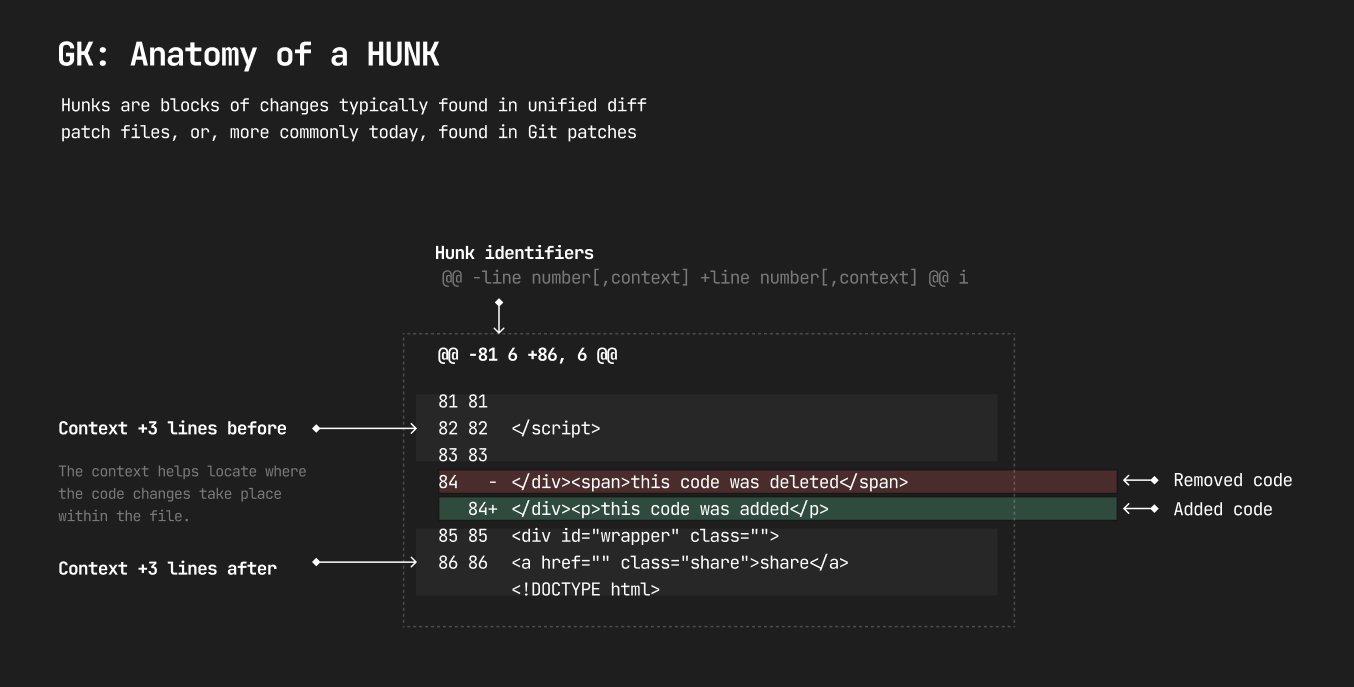
Visualizing process models for Git development is crucial for understanding the current environment. These visual representations help identify bottlenecks, redundancies, and inefficiencies, forming the foundation for a strategy and implementation improvements. This fosters a sense for an optimized and more productive Git development environment.
Engaging with users to understand their pain points and gathering feedback is essential. This helps in refining the product to meet real-world needs and expectations, ensuring it adds value and improves workflows.
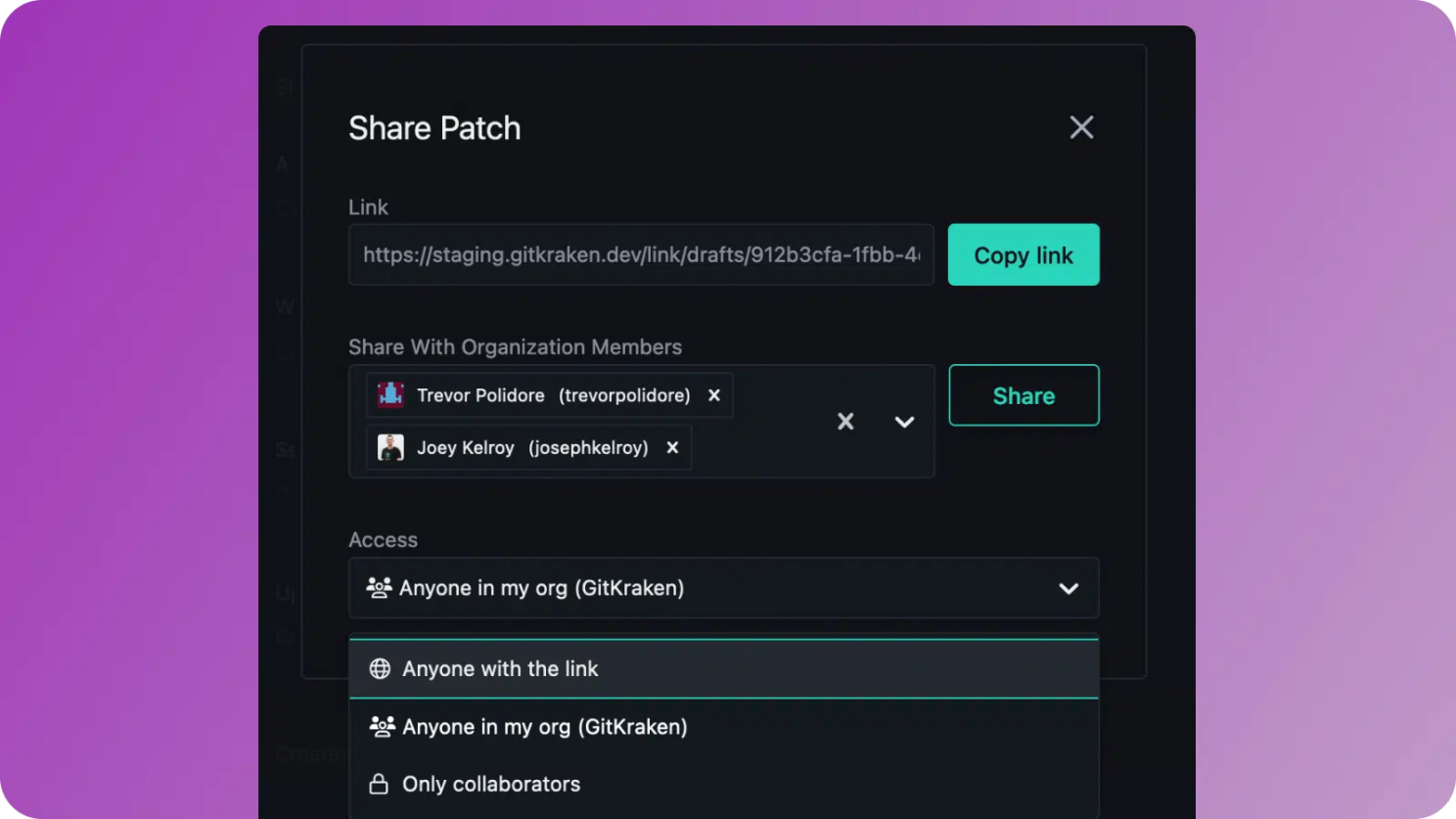
Sharing and inviting reviewers and collaborators has become integral to software applications. This feature promotes inclusivity, collective intelligence, and accelerated innovation, enhancing the overall development process. Enabling developers to share and collaborate effortlessly is imperative to the user experience.
This simple diff tool allows users to review entire files and navigate directories easily. Future iterations will include commenting and approving or denying individual lines of code, making the process even more efficient.
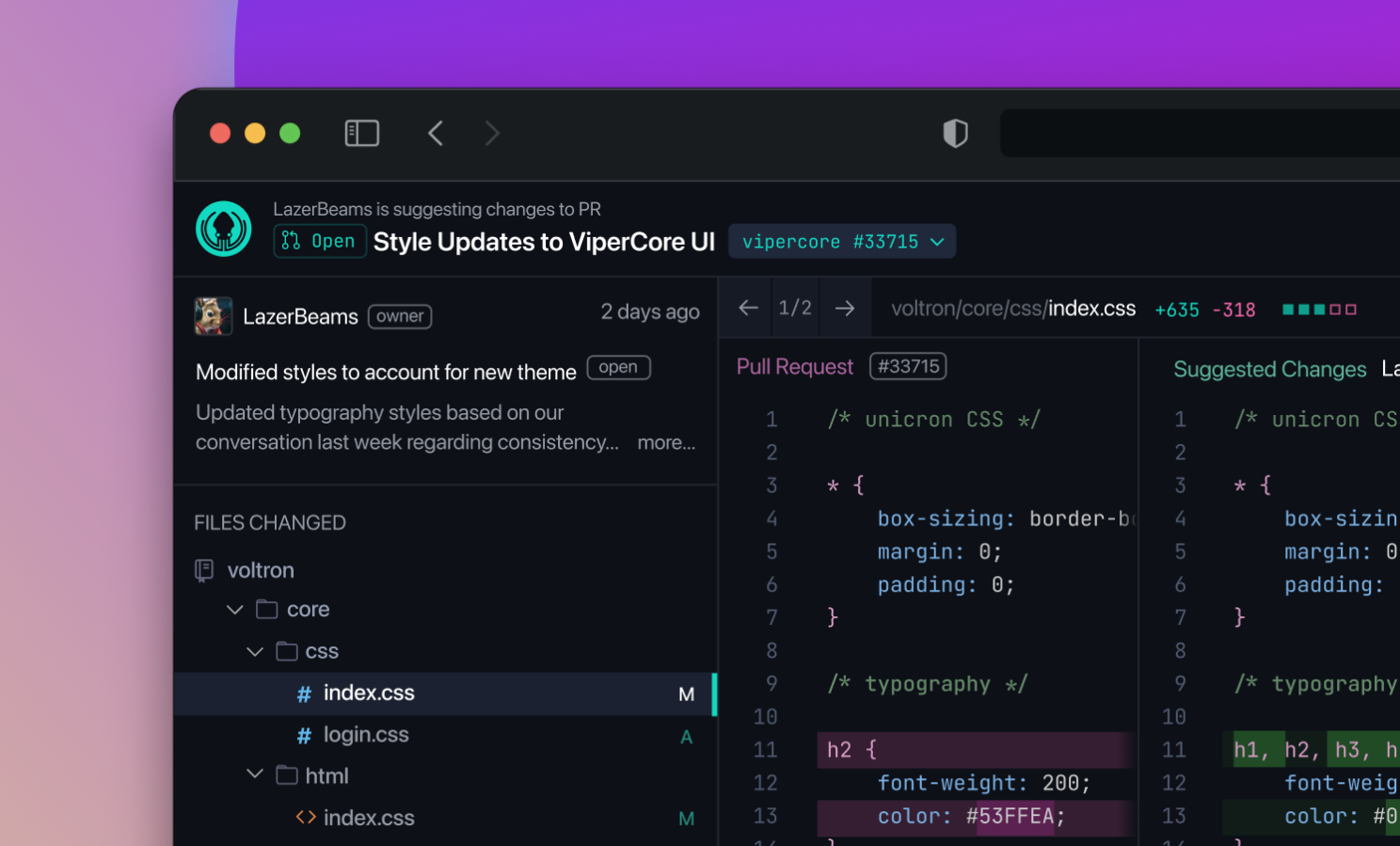
The design of our tool is intentionally clean and simple, ensuring an intuitive user experience that allows developers to focus on what matters most: writing and reviewing code. While the current iteration emphasizes ease of use and streamlined functionality, we are actively planning future updates. These updates will introduce advanced features such as the ability to comment directly on specific lines of code and approve or deny changes on a line-by-line basis, further enhancing the collaborative and review process for developers.
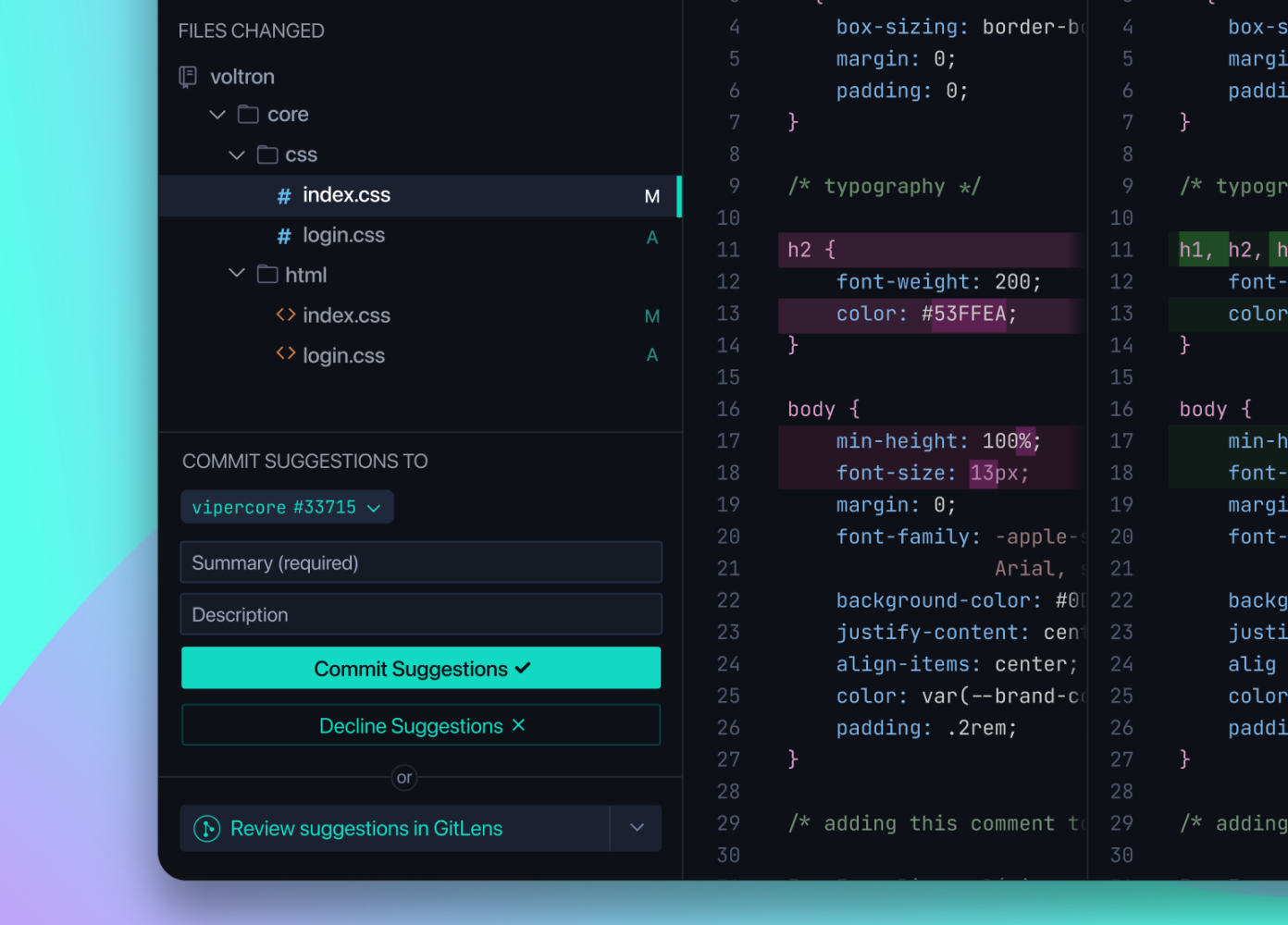
Effective code writing hinges on rigorous human collaboration and code reviews. By immersing ourselves in the problem, we identified significant pain points in the code review process that hinder developers globally. Our solution simplifies this process, offering more context and enabling direct code suggestions within PRs. At GitKraken, our innovative tool empowers developers to write optimal code effortlessly, enhancing software quality and reliability. If you are interested in learning more or trying the Code Suggest feature yourself - you can do that here for free at GitKraken : https://www.gitkraken.com/gitkraken-dev Thanks for your interest and happy coding!
